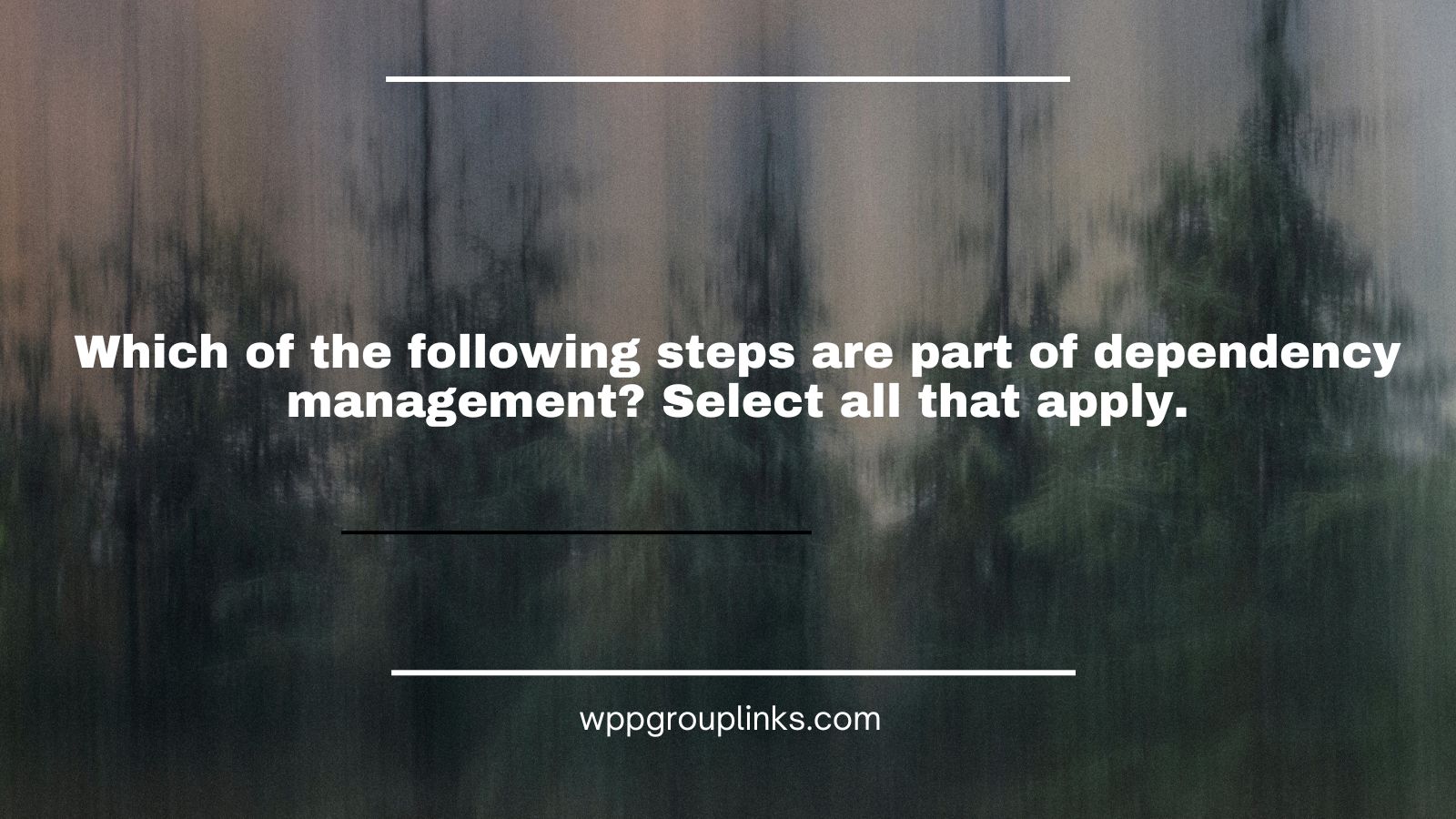Q: Which of the following steps are part of dependency management? Select all that apply.
or
Q: Which of these actions falls under the dependency management category? Choose every option that pertains.
- Continuous monitoring and control
- Efficient communication
- Recording dependencies
- Eliminating dependencies
Explanation:
To ensure that dependencies are effectively managed and maintained throughout the project lifecycle, continuous monitoring is essential. Dependency management involves systematically tracking and understanding the relationships between different tasks, activities, or components within a project. This ensures that any changes or updates are promptly addressed and that potential risks associated with dependencies are mitigated.
Here are key aspects of dependency management:
- Continuous Monitoring: Project managers should consistently monitor dependencies to identify any changes or updates that may impact the project timeline or deliverables. This involves tracking dependencies in real-time and promptly addressing any issues that arise.
- Thorough Documentation: It’s crucial to document and record dependencies comprehensively to gain a clear understanding of how various actions or components are interrelated. This documentation should include details such as the nature of the dependency, the affected tasks or components, and any associated risks or constraints.
- Comprehensive Comprehension: By documenting dependencies thoroughly, project teams can develop a comprehensive understanding of how different project elements rely on each other. This allows for more accurate planning, scheduling, and resource allocation, minimizing the likelihood of delays or disruptions.
- Risk Mitigation: Understanding dependencies helps project teams identify potential risks associated with interdependencies. By proactively addressing these risks and implementing mitigation strategies, project managers can minimize the impact of dependencies on project outcomes.
- Effective Planning: Dependency documentation serves as a valuable tool for project planning and decision-making. It allows project managers to anticipate dependencies and plan accordingly, ensuring that resources are allocated efficiently and project milestones are met on time.



